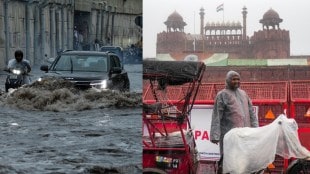Amar Mulla, a senior advocate of the Supreme Court, has taken a significant step toward shedding light on the intricacies of Maintenance Laws in India through his insightful book titled “Law of Maintenance.” With a long-standing commitment to advocating for gender equality and social justice, Mulla’s book addresses the crucial responsibility of individuals to provide financial support to their dependent family members in times of need.
Understanding Maintenance Laws
The cornerstone of maintenance laws in India is the establishment of an individual’s obligation to extend financial support to their parents, spouse, and children when the latter are incapable of supporting themselves. This legal framework ensures the well-being of dependents by ensuring their basic financial needs are met. The concept of maintenance encompasses financial support given to dependent spouses, children, or parents and can be delivered as a lump sum payment or regular monthly instalments.
Amar Mulla: Advocate for Change
Amar Mulla’s illustrious legal career is highlighted by his steadfast dedication to the empowerment of Muslim women. His prominent role in championing the Triple Talaq Act reflects his commitment to addressing the rights and well-being of women within the Muslim community. By advocating against the unjust practice of instant triple talaq, Mulla has positioned himself as a catalyst for positive change, emphasizing gender equality and social justice.
A Deeper Dive into “Law of Maintenance”
“The book explains that provisions for maintenance have been established across various legislations, including Sections 125-128 of Cr.P.C., 1973, Section 20 of the Protection of Women from Domestic Violence Act, 2005, Sections 18-28 of the Hindu Adoptions and Maintenance Act, 1955, Sections 24 and 25 of the Hindu Marriage Act, 1956, the Muslim Women (Protection of Rights on Divorce) Act, 1986, the Family Courts Act, and Section 7 of the Maintenance of Parents and Senior Citizens Act, 2007.” According to Amar Mulla, the book aims to highlight key issues like jurisdiction overlaps, the rights of adult unmarried daughters, and the post-divorce maintenance rights of wives.
Critical Issues Explored
The book titled “Law of Maintenance” aims to tackle pivotal issues within the realm of maintenance laws, including jurisdiction overlaps, the rights of adult unmarried daughters, and the post-divorce maintenance rights of wives. By examining these pressing matters, Amar Mulla seeks to offer comprehensive insights and potential solutions that can navigate the complexities of maintaining dependents’ financial security.
Amar Mulla’s “Law of Maintenance” serves as a beacon of knowledge for legal practitioners, scholars, and individuals seeking clarity on the intricacies of maintenance laws in India. With his extensive legal acumen and deep commitment to promoting gender equality and social justice, Mulla continues to contribute significantly to legal discourse and empowerment across the nation.









